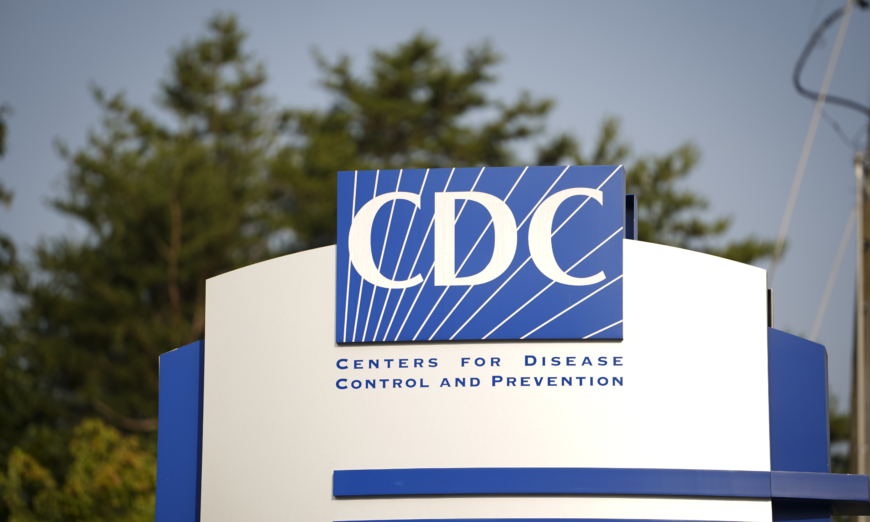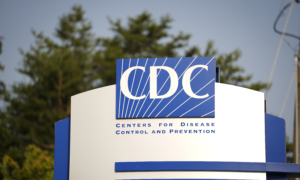‘Voice of CDC’ Journal Made Unsubstantiated Claims About Masking Against COVID-19: Pre-Proofed Study
A go-to source for health policymakers published studies supporting masking despite their questionable designs and lack of statistical evidence.
One of the most influential federal health journals in the United States has published unsupported claims about the benefits of masks in preventing transmission of COVID-19, according to authors of a manuscript recently accepted for publication in The American Journal of Medicine.
Researchers at the University of California–San Francisco and the University of Southern Denmark analyzed 77 studies published after 2019. Conclusions favoring masks were seen in over 75 percent of the studies.
However, after further scrutiny, researchers discovered questionable qualities in most of the studies—qualities that could easily misrepresent results and confuse readers such as health care professionals, researchers, and the public. These qualities included poor study design, scarcity of statistical significance, dubious methods for assessing mask effectiveness, failure to cite conflicting data, and lack of randomization.
Moreover, over 50 percent of the studies failed to use appropriate language when synthesizing findings, labeling results as causal instead of correlative or associative. Scientific principles dictate that causation cannot be inferred based on retrospective, cross-sectional, or observational designs—the only three designs used across all 77 studies.
The findings raise concern about the scientific journal’s reliability for informing health policy—a journal that does not require external peer review before publication, according to the authors.
“Over 60% of the included studies concluded masks were effective without statistically significant evidence to support this,” the authors wrote, noting that less than 15 percent of the 77 studies did provide such evidence. “For clinicians, simply reading the report conclusions pertaining to masks in MMWR may be misleading for advising patients and making health policy recommendations.”
What Is the MMWR?
The CDC’s MMWR is a long-established series of individual reports sent to the agency weekly by state health departments. State-by-state data are then pooled to form a summary representing the tracking and monitoring of specific health-related events like disease outbreaks, infections, and deaths, as well as the current status of other important health topics.
According to the CDC website, health officials refer to the MMWR as “the voice of CDC” and tout it as a “primary vehicle for scientific publication of timely, reliable, authoritative, accurate, objective, and useful public health information and recommendations.”
What Did the MMWR Publish?
Of the 77 studies published in the MMWR, only 30 percent tested mask effectiveness, according to the pre-proofed paper. Despite this, over 75 percent concluded masks could thwart viral transmission, and only a fraction showed the necessary statistics to make this claim. Four studies reported more COVID-19 cases among the masking group than the control, yet all four concluded masks were effective.
None of the studies used a randomized control trial design, considered the gold standard in research design and the only way cause and effect can be determined.
“MMWR studies consistently drawing conclusions about mask effectiveness without supporting evidence is particularly problematic and difficult to justify considering the totality of randomized evidence about the use of surgical or N95 masks to prevent the spread of respiratory viruses has been negative,” the authors wrote.
Strong Conclusions Despite Lack of Evidence
“None of the MMWR studies were randomized and none mentioned higher-quality randomized studies, which fail to find evidence of mask effectiveness,” the authors wrote. “Our findings highlight the [MMRW]’s lack of reliance on high-quality data and a tendency to make strong but unsupported causal conclusions about mask effectiveness.”
As of May, the CDC continues to recommend masks for people 2 years and older, though recommendations differ based on COVID-19 hospitalization rates across the country. According to agency health officials, vaccination and masking will reduce the spread of COVID-19 and ease the burden on the health care system.
The Epoch Times reached out to the CDC for comment but received no reply by press time.
This article has been archived for your research. The original version from Epoch Times can be found here.






